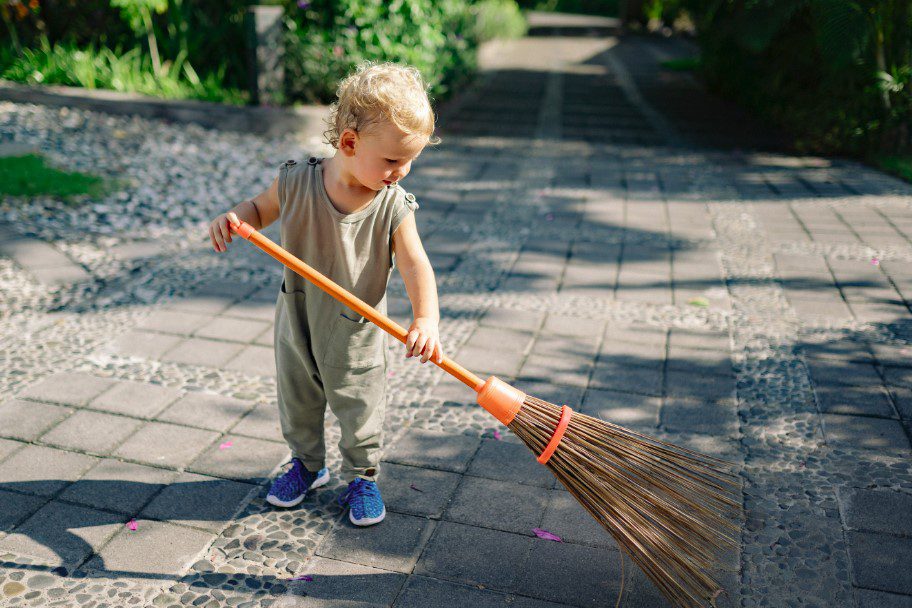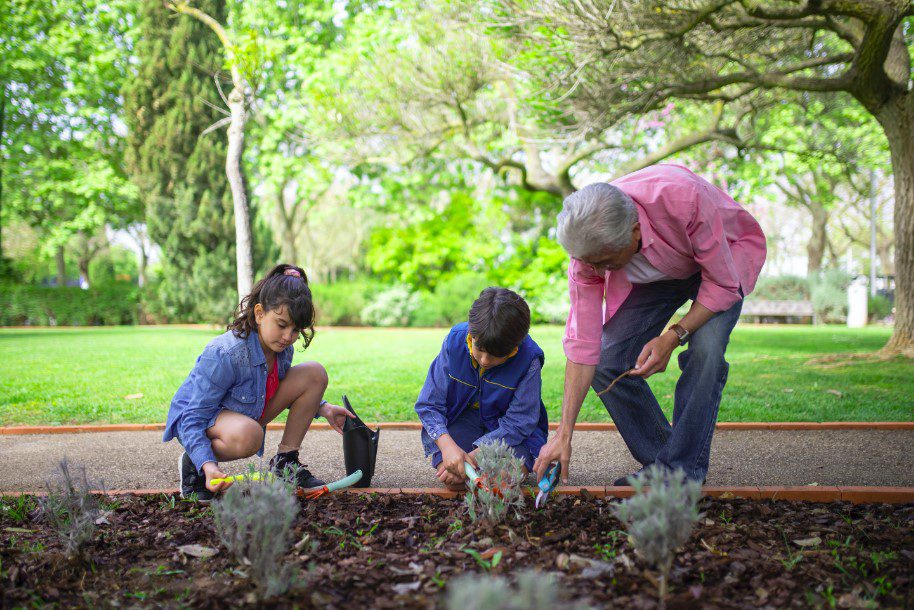As children grow and develop, it becomes increasingly important to teach them responsibility and instill valuable life skills. One effective way to achieve this is by assigning age-appropriate chores to them. This allows them to contribute to the household and learn essential skills as they work.
Age appropriateness serves as a guideline for parents, educators, and caregivers to make informed decisions about what activities, tasks, or content are suitable and beneficial for children and teenagers at different stages of their development.
It promotes their overall growth, safety, and well-being by ensuring they engage in experiences that align with their capabilities.
In this article, we will explore a range of chores suitable for different age groups, providing examples that parents can consider when assigning tasks to their children.
What is Age Appropriateness?

Age appropriateness refers to the suitability of a certain activity, content, or task for a specific age group based on their physical, cognitive, emotional, and social development. It takes into consideration the unique abilities, interests, and maturity level of children and teenagers at different stages of their growth.
Determining age appropriateness involves assessing whether an activity or content aligns with the developmental capabilities and understanding of a particular age group. It considers factors such as motor skills, language comprehension, attention span, emotional resilience, and social interaction skills.
For example, age-appropriate toys for infants focus on stimulating their senses and developing their fine motor skills, while activities for preschoolers may involve simple puzzles or imaginative play to enhance their cognitive abilities and creativity.
As children grow older, the complexity and challenges of tasks can increase to match their advancing skills and knowledge.
In terms of content, age appropriateness ensures that children and teenagers are exposed to materials, such as books, movies, or online content, that are suitable for their age group in terms of subject matter, language, and themes. This helps protect their emotional well-being, maintain their innocence, and avoid exposing them to inappropriate or harmful content.
How and When to Assign Age Appropriate Chores to Children
Assigning age-appropriate chores allows children to contribute to the household, learn important life skills, and develop a sense of responsibility.
Here are some examples of age-appropriate chores for different age groups:

1. Chores for Young Children (Ages 3-6)
At this tender age, children are eager to explore and imitate the activities they observe around them. Introducing simple chores not only helps them develop a sense of responsibility but also builds their self-confidence.
Here are some age-appropriate chores for young children:
- Putting away toys: Encourage your child to clean up after playing by teaching them how to organize and put away their toys in designated bins or shelves.
- Setting the table: Teach your child the basics of setting the table for meals, such as placing napkins, utensils, and cups in their proper places.
- Watering plants: Show your child how to water indoor or outdoor plants, allowing them to feel a sense of contribution and connection with nature.
2. Chores for Elementary School Children (Ages 7-10)
As children progress into elementary school, they become more capable of handling slightly more complex tasks. This is an opportune time to introduce chores that require a bit more responsibility.
Consider the following chores for children in this age group:
- Making their bed: Encourage your child to take responsibility for making their bed each morning, helping them develop a sense of tidiness and organization.
- Folding laundry: Teach your child how to fold their own clothes, starting with simple items like t-shirts and socks, and gradually progressing to more complex garments.
- Feeding pets: If you have a family pet, assign the task of feeding them to your child, ensuring they understand the importance of providing care and meeting the needs of another living being.
3. Chores for Preteens (Ages 11-13)
As preteens enter a phase of greater independence, it is essential to assign chores that encourage them to take on more responsibility and develop a stronger work ethic.
Here are a few examples of suitable chores for this age group:
- Doing the dishes: Teach your child how to wash dishes, either by hand or using a dishwasher. They can take turns with other family members, making it a shared responsibility.
- Mowing the lawn: Depending on the maturity and physical capability of your child, you can assign them the task of mowing the lawn or assisting with yard work under supervision.
- Preparing simple meals: Encourage your preteen to learn basic cooking skills by preparing simple meals or snacks, fostering their independence and creativity in the kitchen.
4. Chores for Teenagers (Ages 14-19)
Teenagers are at a stage where they can take on more challenging tasks and actively contribute to the smooth functioning of the household. Assigning them meaningful chores helps them develop essential life skills and prepares them for adulthood.
Consider the following chores for teenagers:
- Grocery shopping: Allow your teenager to take responsibility for creating a shopping list, comparing prices, and even accompanying you to the grocery store. This will provide them with valuable real-world experience.
- Managing personal finances: Teach your teenager about budgeting, saving money, and paying bills. Guide them on how to manage their personal finances effectively. This empowers them with crucial life skills for their future.
- Home maintenance: Involve your teenager in home maintenance tasks, such as mawing the lawn. Let them weed the garden, water plants, change light bulbs, fix minor repairs, or paint a room. This helps them develop practical skills and a sense of pride in taking care of their living environment.
- Babysitting younger siblings: If your teenager is mature and responsible, they can take on the responsibility of looking after younger siblings for short periods of time.
- Doing laundry: They can learn how to sort and wash their own clothes, as well as fold and put them away.
- Cooking and meal prep: Teenagers can help with meal planning, grocery shopping, and preparing simple meals or snacks under supervision.
The Benefits of Age-Appropriate Chores
Assigning age-appropriate chores to children and teenagers offers numerous benefits beyond the development of responsibility.

Let’s explore some of these advantages:
- Building life skills: Chores teach children important life skills, such as organization, time management, and problem-solving. These skills are essential for their personal and professional growth.
- Fostering independence: By assigning chores, parents encourage their children to become self-reliant and independent. They learn to take initiative, complete tasks on their own, and develop a sense of accomplishment.
- Promoting teamwork and cooperation: When multiple family members are involved in household chores, it promotes teamwork and cooperation. Children learn the value of working together, respecting others’ contributions, and maintaining a harmonious living environment.
- Enhancing self-esteem: Accomplishing tasks and contributing to the family’s well-being boosts children’s self-esteem. They feel valued and appreciated, leading to increased confidence in their abilities.
- Preparing for adulthood: Learning practical skills through chores prepares children for the responsibilities they will encounter as adults. They gain a sense of readiness and competence, easing their transition into independent living.
In Conclusion
Assigning age-appropriate chores to children and teenagers is a valuable strategy for instilling responsibility and building essential life skills.
By introducing tasks that align with their developmental stage, parents can empower their children to contribute to the household and foster their personal growth. From simple chores like tidying up to more complex responsibilities such as managing finances, each assigned task plays a vital role in shaping responsible and capable individuals.
So, start implementing age-appropriate chores today and witness the positive impact it has on your child’s development and future success.
Remember, nurturing responsibility starts at home, and age-appropriate chores are an excellent tool for achieving this goal.





Leave a Reply